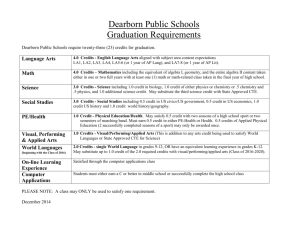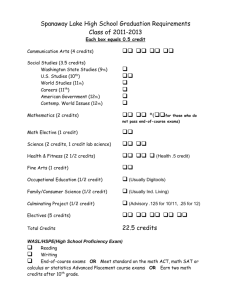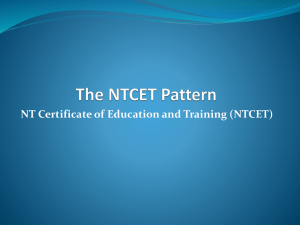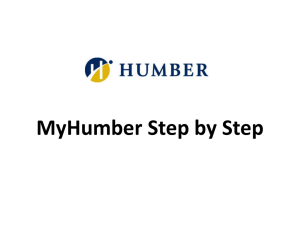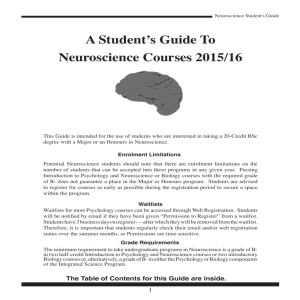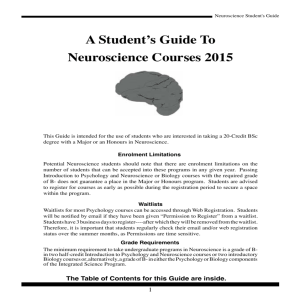Interdisciplinary Concentration Plan
advertisement
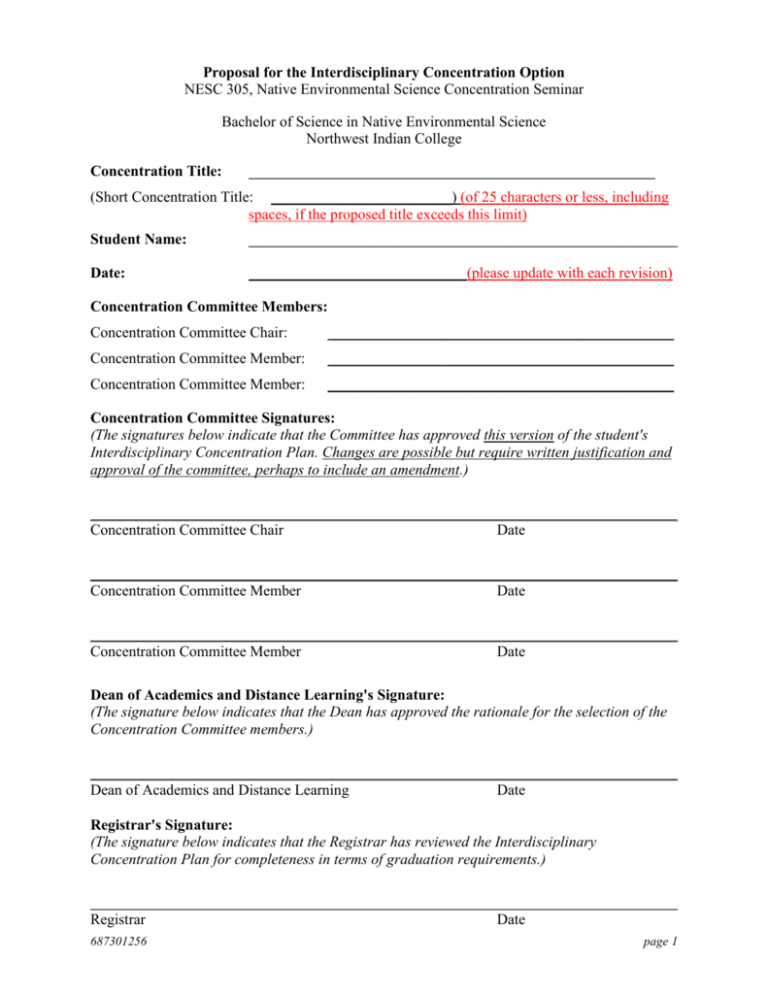
Proposal for the Interdisciplinary Concentration Option NESC 305, Native Environmental Science Concentration Seminar Bachelor of Science in Native Environmental Science Northwest Indian College Concentration Title: ______________________________________________________ (Short Concentration Title: ________________________) (of 25 characters or less, including spaces, if the proposed title exceeds this limit) Student Name: _________________________________________________________ Date: _____________________________(please update with each revision) Concentration Committee Members: Concentration Committee Chair: ______________________________________________ Concentration Committee Member: ______________________________________________ Concentration Committee Member: ______________________________________________ Concentration Committee Signatures: (The signatures below indicate that the Committee has approved this version of the student's Interdisciplinary Concentration Plan. Changes are possible but require written justification and approval of the committee, perhaps to include an amendment.) ______________________________________________________________________________ Concentration Committee Chair Date ______________________________________________________________________________ Concentration Committee Member Date ______________________________________________________________________________ Concentration Committee Member Date Dean of Academics and Distance Learning's Signature: (The signature below indicates that the Dean has approved the rationale for the selection of the Concentration Committee members.) ______________________________________________________________________________ Dean of Academics and Distance Learning Date Registrar's Signature: (The signature below indicates that the Registrar has reviewed the Interdisciplinary Concentration Plan for completeness in terms of graduation requirements.) ______________________________________________________________________________ Registrar Date 687301256 page 1 [To the Student: Notes such as this in red text comprise guiding information that may be deleted once they have served to assist you in the development of this proposal. Once you develop your first draft, please rename this file according to this convention: "Last name, first initial Concentration Proposal Draft date," e.g., "Smith, J. Concentration Proposal Draft 2-16-12" might be the new file name. Please also be sure to update the footer at the bottom of each page to reflect updated file names.] INTRODUCTION Include the following in this section: What you wish to learn about through the coursework, etc. described below (including details regarding the main problem, topic or research question that you propose to address in your studies—include specific learning outcomes to be described more fully below) Rationale for your proposal (e.g., why are you interested in this topic and why is it important to you?) Background and critical review Potential outcomes and significance of the proposal COMPOSITION OF THE CONCENTRATION Relationship of Concentration Elements to What I Wish to Learn: Address the following questions in developing this section: What is the main topic or theme of your concentration? How do the various elements of your concentration relate to the main topic or theme and what you wish to learn? How does your concentration relate to Native environmental science? Individualized Studies Coursework: Note: It is recommended that each course in this section have a unique course title. Course titles may have a maximum of 60 characters, including spaces. Please also provide a short title if the proposed title is over 25 characters. What will you learn in your individualized studies coursework (include details of other people involved in the coursework, e.g., teachers, community members, etc.)? Each proposed individualized studies course should be fully identified and accompanied by at least a preliminary learning contract and/or syllabus. (Note that a BS-NES-specific learning contract and associated syllabus template are available upon request for this purpose.) Service Learning: Address the following questions in developing this section: What will you learn through your service learning component(s), which will be part of your individualized studies coursework, and how will you learn it? Which five credits of individualized studies coursework (listed in the preceding section) will the service learning be associated with? (Please note that this course also should include some written reflection assignment in which the student comments upon the service learning experience.) 687301256 page 2 What community group will be associated with your service learning? Internship(s): Address the following questions in developing this section: What do you intend to learn in your proposed internship(s) and how will that contribute to your overall concentration proposal and capstone project (include details regarding any associated people or organizations)? Capstone Project: Describe your proposed capstone project (including any specific approaches, theories, methods, materials, analysis, evaluation and synthesis that it may involve). (Please include details regarding any people or organizations associated with your capstone project. Address the written, oral and graphic elements in terms of a capstone paper, oral presentation and other deliverables (e.g., a poster). Include details regarding consideration of your research if it involves human subjects in a manner that would require review and approval by the NWIC Institutional Review Board (IRB) prior to initiating your research. 687301256 page 3 Listing of Courses: Note: The courses listed below represent courses beyond the Associate of Arts and Sciences degree level (consisting of 90 credits, e.g., as fulfilled by completion of the AAS in Native Environmental Science). Those 90 credits plus the additional 90 credits detailed below should add up to a minimum total of 180 credits required for the BS-NES degree. In addition, you may be required to complete additional BS-NES program prerequisites for the ICO, which are listed below. B.S. in Native Environmental Science Program Prerequisites Course Course Title Number BIOL 101 or Introduction to Biology, Basic Biology, or 100, 130 or 201 Introduction to Marine Biology CHEM 111 or 121 GEOL 101 or 111 MATH 102 or 107 POLS 225 Grade Credits (letter grade or WIP & quarter) 5 Inorganic Chemistry or General Chemistry I 5 Introduction to Geology or Finding Things Out in Earth Science College Algebra or Elementary Statistics I 5 History of Federal Indian Policy 5 5 B.S. in Native Environmental Science Core Courses (Core requirements for both Environmental Science Option and Interdisciplinary Concentration – must be taken at NWIC.) Course Number NESC 301 NESC 310 NESC 393A NESC 393B NESC 393C NESC 493A NESC 493B NESC 493C NESC 497 NESC 499A NESC 499B 687301256 Course Title Grade Credits The Ecology of the First People (letter grade or WIP & quarter) 3 Native Science Native Environmental Science Seminar III Native Environmental Science Seminar III Native Environmental Science Seminar III Native Environmental Science Seminar IV Native Environmental Science Seminar IV Native Environmental Science Seminar IV Internship in Native Environmental Science Native Environmental Science Capstone Project (taken in the junior year) Native Environmental Science Capstone Project (taken during the last quarter at NWIC) 5 1 1 1 1 1 1 5 5 5 page 4 POLS 319 687301256 From the Beginning of Time: Native American Fishing Rights Core Credits Subtotal (34 required): 5 34 page 5 Interdisciplinary Concentration Credits Note: These consist of 56 credits total, including the following: NESC 305, 30 credits of elective courses and 21 credits of Individualized Studies courses. At least 26 of the concentration credits listed below must be at the 300-499 level. Elective courses may include any course numbered 100-499, as approved by the student's concentration committee. (These are in addition to the 300-499 level core courses and may include NESC 303, Native Environmental Science Interdisciplinary Seminar, which is a prerequisite for NESC 305.) Course Number Course Title Grade Credits Native Environmental Science Concentration Native Environmental Science Concentration (letter 5 st nd Seminar (taken the 1 or 2 quarter in grade concentration – required course for the or WIP Interdisciplinary Concentration and must be taken & at NWIC) quarter) a) NESC 305 credits subtotal (5 required): 5 Elective Courses at NWIC or approved upper division (i.e., 300-499 level) courses at WWU or another college (30 credits) Note: These are courses that already exist—including special topics and individualized studies courses, and may be selected from the NWIC Catalog. NESC 305 b) Elective course credits subtotal (30 required): 30 Individualized Studies Courses (21 credits with a minimum of 5 credits to include service learning [SL]) Note: The service learning may be developed with assistance from the Center for Indigenous Service Learning and the course(s) in which the service learning component will take place should be indicated in this proposal. c) Individualized Studies credits subtotal (21 required, incl. 5 SL): Total credits in parts a, b and c above (56 required): Are there 26 credits at the 300-499 level in the Interdisciplinary Concentration credits? 687301256 No __ 21 56 Yes __ page 6 Rationale for Selection of Concentration Committee Members: Note: Why specifically have you chosen the people you have named below (e.g., what are they qualifications, expertise, content knowledge, etc.)? Organizations, Accredited Institutions and People Associated with the Proposal: Note: This may include individualized studies partners, internship supervisor(s), service learning partner(s), etc. Quarterly Schedule of all Proposed Courses: Note: You may provide an attachment here, e.g., an Excel spreadsheet file as provided by your instructor. CONCLUDING REMARKS Note: This is an optional section. 687301256 page 7 REFERENCES Note: This is a required section. It should be based upon your background literature review and derive from your annotated bibliography. Please note that NoodleTools Express is a free bibliographic citation generator that is available at: http://www.noodletools.com/login.php. It includes American Psychological Association (APA) style, which is acceptable for use in this proposal. 687301256 page 8





